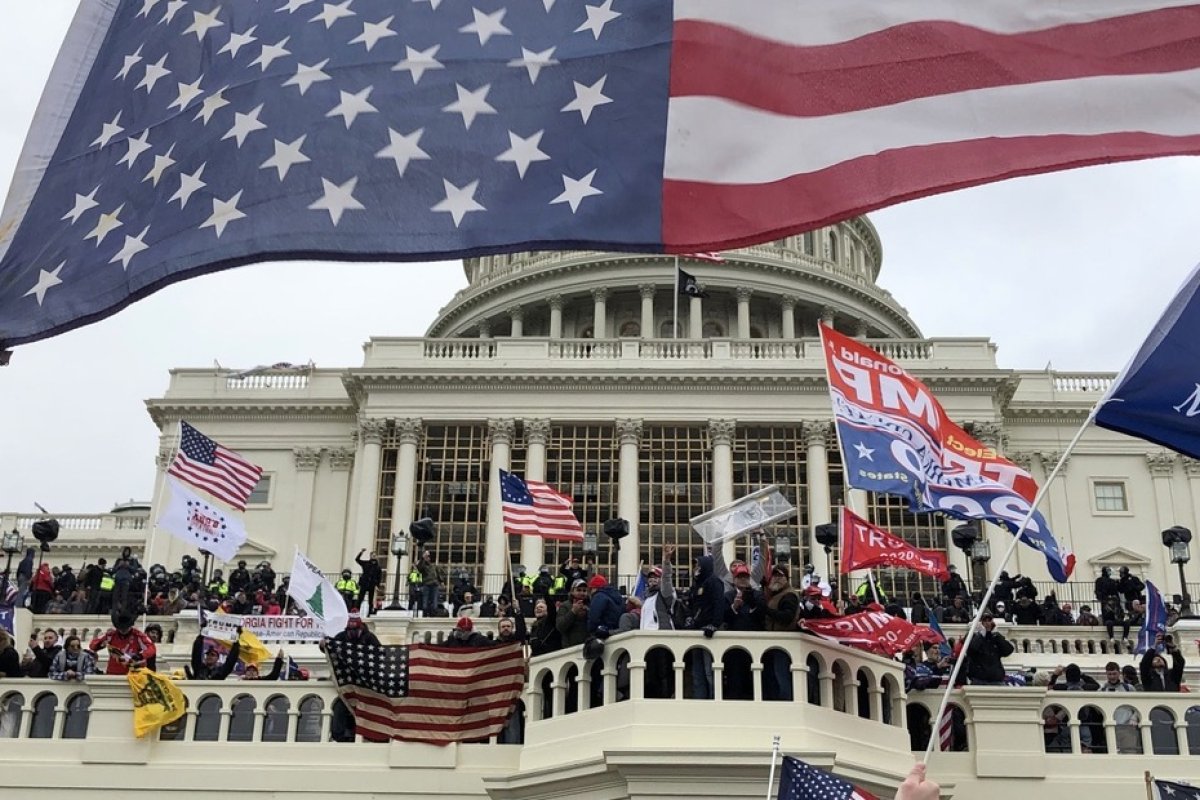
Is This America?
A distinction may bring some clarity to disagreements about the meaning of the Capitol riots
During the invasion of the United States Capitol on January 6, EU Minister of Foreign Affairs Josep Borrell tweeted, “This is not America.” Joe Biden likewise tweeted, “Let me be very clear: the scenes of chaos at the Capitol do not represent who we are. What we are seeing is a small number of extremists dedicated to lawlessness. This is not dissent, it's disorder. It borders on sedition, and it must end. Now.” Fifteen minutes later, he added, “America is so much better than what we’re seeing today.”
Biden and others immediately received pushback from a number of commentators, who pointed out that the Capitol invasion was the product of systemic forces that have been part of the United States for centuries. “This is America,” Megan Rapinoe remarked in an interview, adding, “We showed very much our true colors... Unleashing a white supremacist mob is nothing new to America.” Bernice King, Baptist minister and daughter of Martin Luther King Jr., made the point clearly, writing, “We need to stop saying ‘This is not who we are’ in ‘America.’ Indeed, this is not who the United States should be, but denial won’t make the injustices and inhumane ideologies less so. We can’t change without truth.”
So, is this America? Is this who we are?
This is a difficult question. To answer it, we need to distinguish between descriptive and normative senses of “America,” and we need to think critically about who or what counts as representative for America. Scholars of religion are thus well-positioned to unpack and address this question, since we are, for example, accustomed to thinking critically about what counts as “Islam” and about what we are saying when we call something “Shinto.” G.K. Chesterton famously said that America is the only country founded on a creed. Whether or not he’s right, the creedal sense of “America” as a set of values and a collective project coexists with a descriptive sense of “America” as a socio-historical reality.
Let me illustrate this by a more mundane example. Years ago, I saw a public service announcement that read, “Chicagoans Don’t Drink and Drive.” This statement could mean any of the following:
1) Chicagoans never, ever drive drunk. It simply doesn’t happen.
2) Chicagoans, as a general rule, rarely drive drunk.
3) Chicagoans rarely if ever drive drunk, and this is something
distinctive about them.
3b) If you don’t drive drunk, you are a Chicagoan or behaving like one.
4) People who drive drunk are not real Chicagoans; a person may seem to be a Chicagoan—by living in Chicago, for instance—but if they drive drunk, they do not count as “Chicagoan.”
4b) If you drive drunk, you are betraying your own Chicagoanness. Your actions are at odds with the characteristics that make someone Chicagoan.
4c) If you drive drunk, you are acting like a deficient Chicagoan. Your actions are at odds with the ideals and virtues to which Chicagoans aspire.
5) Chicagoans, like other people, should not drive drunk.
6) Chicagoans specifically should not drive drunk. Drunk driving may be fine in St. Louis, but not Chicago.
The list goes on. Of course, casual readers of the sign probably recognize that it means some combination of (4c) and (5). The sign appeals to readers’ sense of pride in their city and tries to motivate them to take an elevated train after they’ve had too much malört. But still, the sign is deeply ironic, since we only need a PSA that says “Chicagoans don’t drink and drive” because Chicagoans, in fact, do drink and drive.
Religion scholars often navigate these murky semantic waters. Even an innocuous statement like “Muslims don’t eat pork” stands in need of clarification and qualification. If I start a sentence with “Mennonites believe,” I could be describing what all Mennonites believe, what many Mennonites believe, or what Mennonites should believe, given their other commitments. I am also, by making that claim, identifying some group of Mennonites or strand of Mennonite thinking as representative, possibly even normative.
It is an important thing to know about Mennonites that they are pacifists, but it is also important to know that many Mennonites have committed or supported violence. Nevertheless, if a person is especially gung-ho about violence, I’d be reluctant to call them a Mennonite, or at least, not a representative one. Sometimes exceptions prove the rule, and sometimes exceptions disprove the rule.
It helps to make the distinction between descriptive claims (what Chicagoans actually do, what Mennonites actually profess, what events happen in America) and prescriptive claims (what Chicagoans should do, what Mennonites should profess, how America ought to be), and to recognize that these two kinds of claims often get conflated in ordinary speech. We could say that the events of January 6 illustrate longstanding antidemocratic, white supremacist, and paranoid tendencies that descriptively have been and are part of the United States. We could, in the same breath, affirm that the Capitol invasion is not representative of the vision of America for which we should aspire, nor is it consistent with the values and virtues worth preserving in the American tradition.
Simply distinguishing between descriptive and prescriptive senses of “America,” however, does not fully explain the disconnect between Biden and King. Prescriptions of American ideals are grounded in historically accountable narratives and descriptions of American realities have an evaluative dimension. Just as in religious studies, the distinction between descriptive and prescriptive, between claims about what America is and about what America ought to be, is more like a spectrum than a hard-and-fast line. Perhaps it is better to say that “America” is always in some sense rhetorically constructed. Every description of the bitter facts about America is grounded on a sense of how it should be better. Every vision of a better country must reckon with the reality of who the country is and has been. America is neither merely a dream nor merely a reality.
In the words of poet Amanda Gorman, “It’s because being American is more than a pride we inherit. It’s the past we step into and how we repair it.” So much depends upon this “and.”
Photo: Thomas P. Costello | USA TODAY
Sightings is edited by Daniel Owings, a PhD Candidate in Theology at the Divinity School. Sign up here to receive Sightings via email. You can also follow us on Facebook and Twitter. The views and opinions expressed in this article are those of the author and do not necessarily reflect the position of the Marty Center or its editor.


